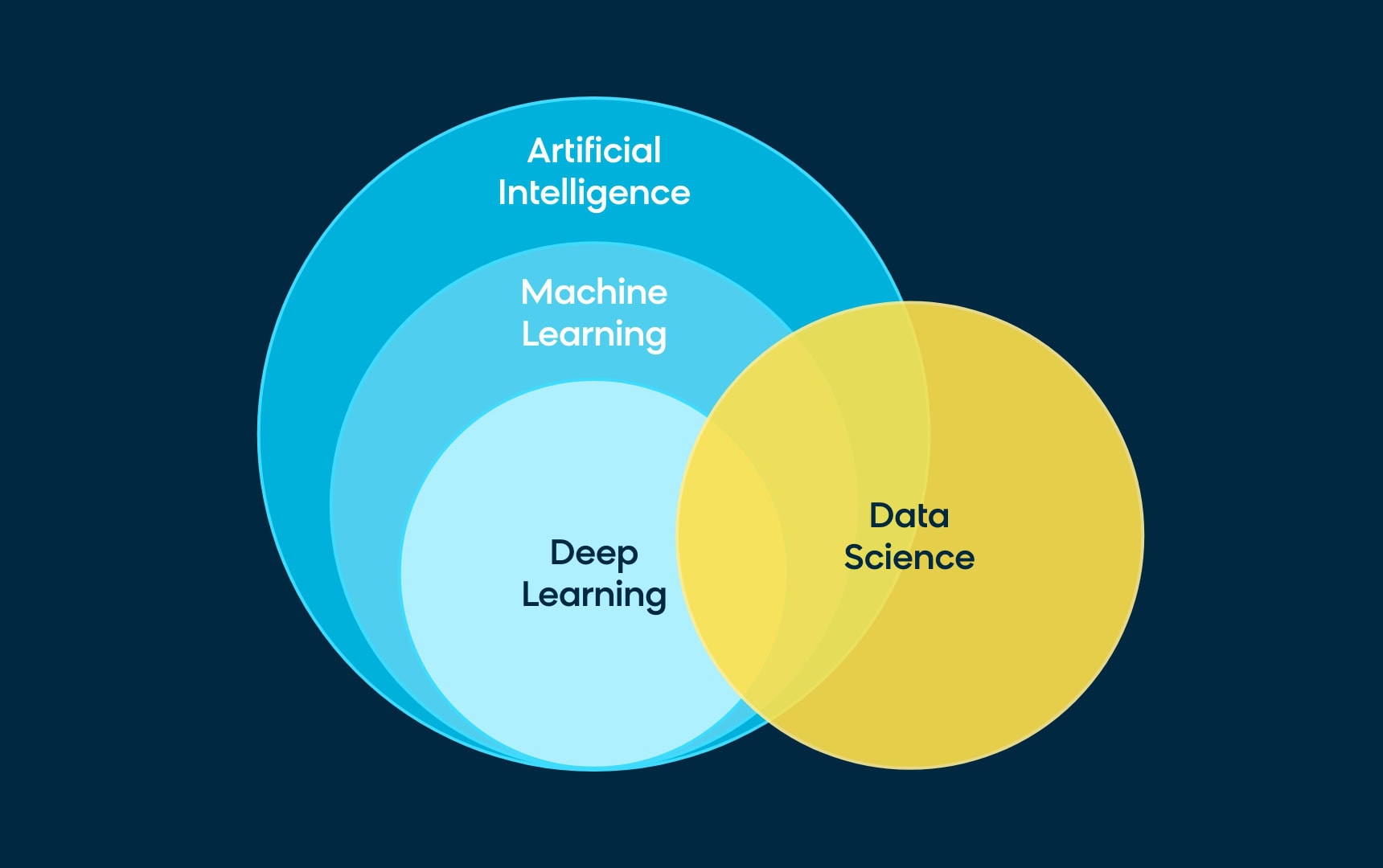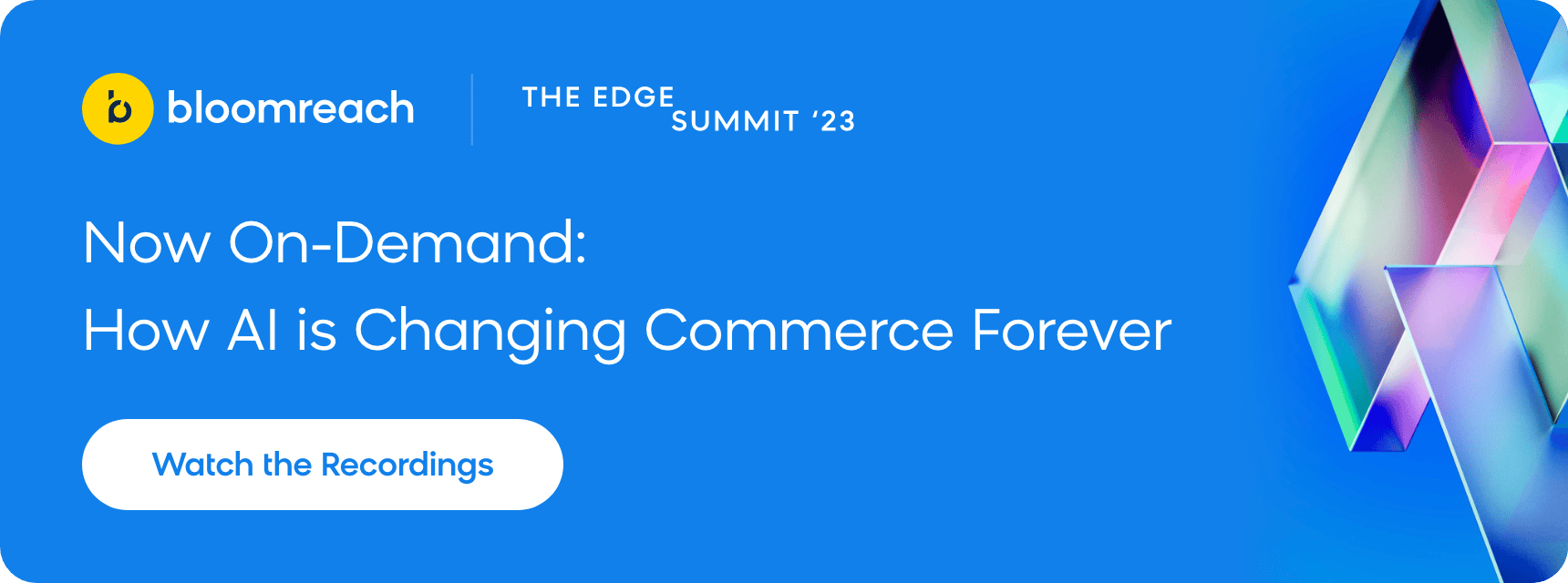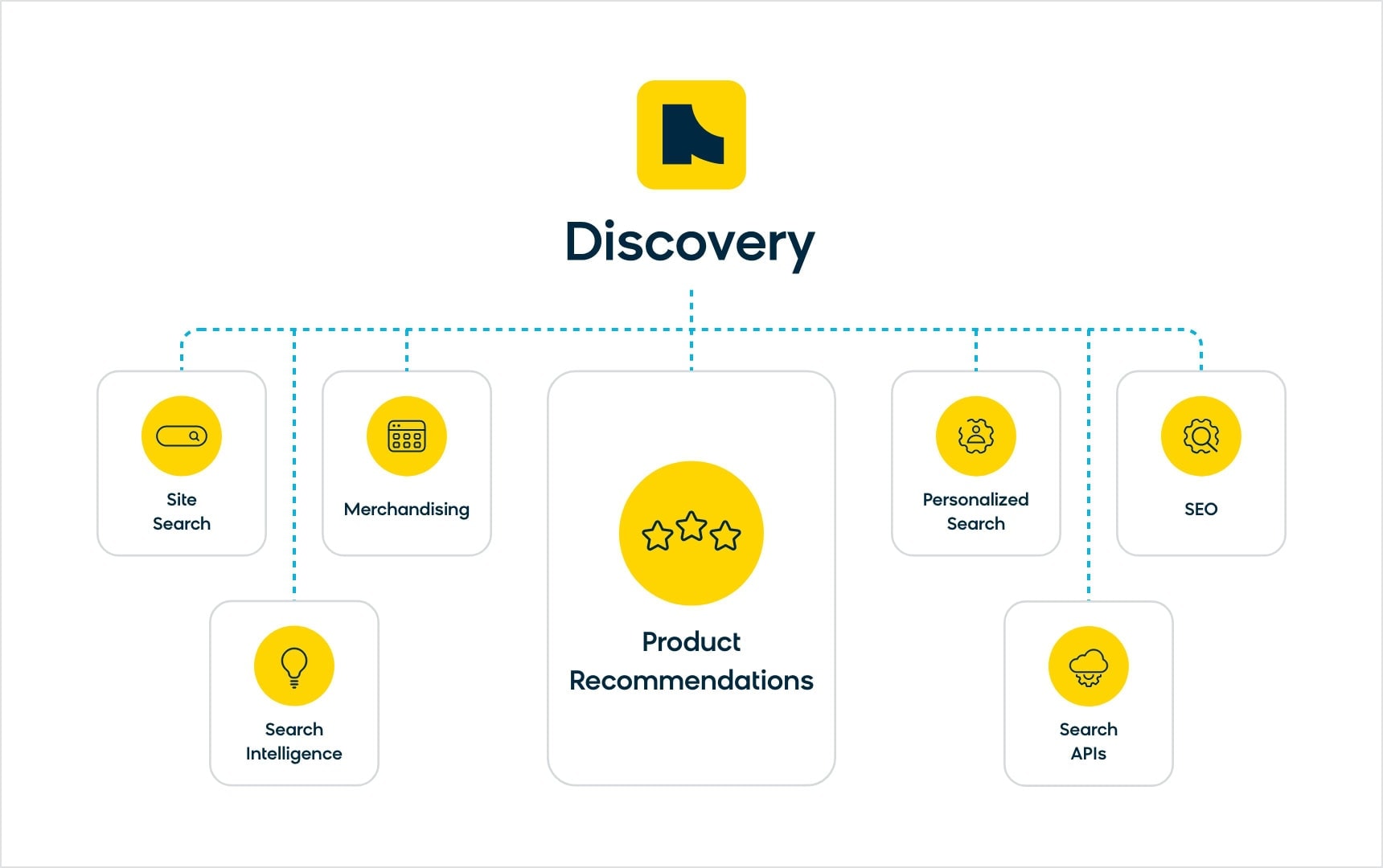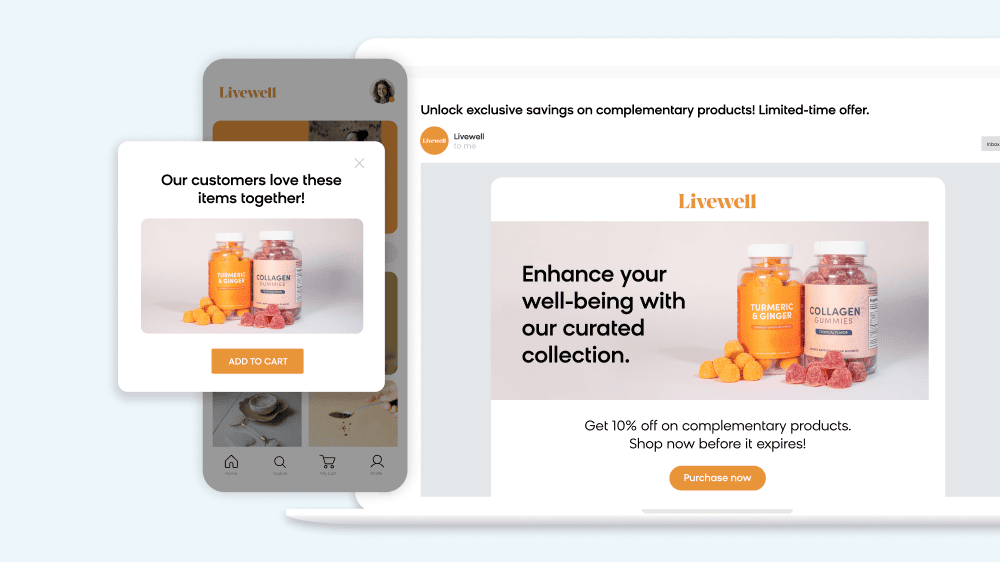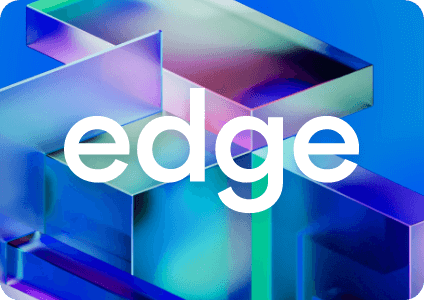Spotting the difference between a fad and a trend can be difficult for the untrained eye. But we need to think of fads as shooting stars — they burn bright, capture everyone’s attention, and quickly fizzle out. On the other hand, a trend develops gradually over time and has a much longer lifespan, often reflecting a significant shift that can influence both our greater culture and business strategies for years.
While we’ve certainly seen plenty of fads come and go in tech, we’ve also seen many great technology trends advance in the past decade: smartphones, electric and self-driving vehicles, wearable tech, cloud computing, and much more. Even though it might seem easy to write off artificial intelligence (AI) as just another fad, it’s more sensible to group AI with these tech trends.
First of all, it’s something that has been around for quite some time to varying degrees of popularity and adoption. Second, AI has also seen many iterations and evolutions, especially in the past year or so. Therefore, it would be a disservice to silence the call for AI in everything.
Remember, the major difference between the two is that success is built on trends, not fads. That’s why your company can’t afford to miss out on using AI. As one attendee of Bloomreach’s Edge Summit eloquently put it, “There’s a general fear that we’re missing the narrow window to get on the boat when it comes to AI. We don’t even need to be at the front of the boat — we just need to be on it.”
So, what does all of this necessarily mean to the product recommendations on your ecommerce website? Let’s explore why product recommendations matter and how AI is used in them, as well as real-life AI recommendation use cases and the benefits you’ll see as a merchandiser, search manager, or ecommerce specialist with relevant recommendations.
Why Do Product Recommendations Matter?
Product recommendations are not just a mere merchandising tactic to increase sales — they matter significantly in shaping the shopping experience of your customers. When you provide tailored suggestions, it shows customers that you understand their needs and preferences and that you genuinely care about enhancing their shopping experience. This creates a sense of trust and reliability, making your customers feel valued and understood.
In addition to building a strong rapport with customers, product recommendations also streamline the shopping journey. As we all know, there’s a lot of information available online today — and even more options when it comes to shopping. By curating a selection of relevant products based on customer behavior, preferences, and past purchases, you’ll help customers shop, not just purchase. Eliminating the overwhelming clutter of options helps customers navigate your offerings with ease, which will save them time and effort and make their shopping experience more enjoyable.
Most noteworthy of all, these recommendation systems have a direct impact on your bottom line — they drive higher revenue per visitor (RPV) and average order value (AOV). Think of it this way: If you present customers with products they are likely to be interested in, you drive up the chances of a larger purchase, fewer returns, and greater customer satisfaction. All in all, product recommendations serve as a powerful tool to enhance customer relationships, simplify shopping experiences, and boost profitability. So, if you’re not already leveraging a recommender system in your strategy, it’s time you get started.
How Is AI Used in Product Recommendations?
When it comes to ecommerce product recommendations, AI is used to analyze customer data and uncover customer shopping patterns. Machine learning (ML), which also falls under the AI umbrella, can collect and learn from a wide variety of data points, such as customer demographics, browsing and purchase history, channel engagement, web page visits, and more. At the intersection of AI, ML, and data, businesses can generate and automate personalized recommendations based on a user’s preferences that feel organic and natural to the customer.
Now, let’s get more granular and break down exactly how AI can help your brand’s recommendation system.
AI Plays a Crucial Role in Data Analysis
Say goodbye to uncertainties in ecommerce! By harnessing the power of AI, you’re now able to effortlessly sift through the vast sea of data that our industry generates. This includes every piece of relevant data from browsing histories and purchasing patterns to customer reviews. With machine learning, you can turn these valuable data points into insights for your business. This acquired wisdom can craft relevant product recommendations for your customers that are perfectly attuned to industry and seasonal trends, consumer preferences, and online and offline behaviors.
AI Uses Predictive Analytics To Determine Future Purchasing Behavior
Ever wish someone could predict your needs before you even know them, especially in a world riddled with so much information and so many choices? That’s exactly what AI does with predictive analytics. With predictive analytics, your brand can get more accurate predictions to tailor product recommendations with insights into customer preferences. This helps you analyze user data and target customers with the right products at the right time and in the right marketing channels.
AI Is Helping Us Enter the Age of Hyper-Personalization
Every shopper is truly unique and deserves a tailored and customized shopping experience that caters to their individual preferences and needs. We know this. However, even after all these years, the industry is still striving to achieve the level of ecommerce personalization that truly meets these expectations. Despite making significant progress, there is still room for improvement. With AI, ecommerce businesses can begin to create a shopping ecosystem that adapts and evolves with each individual customer and all their data points (i.e., website events, customer attributes, and transactional data), providing them with recommendations, offers, and experiences that are perfectly aligned with their unique preferences and desires in any given moment.
AI Assists With Dynamic Pricing Strategies
Who doesn’t love a good deal? AI can respond to this desire and leverage advanced algorithms and data-driven insights to analyze a multitude of pricing factors, from assessing the competition and market demand to evaluating shopping behaviors. By meticulously examining and considering these variables, AI can determine the optimal pricing for a diverse range of products at any given time. This approach not only makes your product recommendations more appealing but also guarantees that your valued customers receive the utmost value.
AI Improves User Experience Exponentially
Think of AI as being at the forefront of revolutionizing the customer experience — its role is multifaceted, and right now, we only know of existing use cases, meaning there’s a lot of room to grow into new ones. But if one thing’s for certain, it’s that AI excels in providing targeted recommendations right now, and it can enable your customers to discover the products they’re searching for (and the ones they didn’t even realize they wanted). At the end of the day, you’ll get more than conversions; you’ll foster stronger loyalty because customers can trust your brand to find what they need through a smooth user experience.
What Are a Few Use Cases of a Recommendation System Using AI?
While AI in ecommerce is nothing new, practitioners are still adjusting to the thought of intentionally incorporating it into their daily workflows. Since the modern merchandiser is expected to be both merchandiser and marketer, AI can help automate certain aspects of their role and focus on moving the business to the next stage of growth.
Here are some use cases where you can start (or expand) the use of AI in your product recommendations workflow.
Show Recommend Products to New and Returning Visitors
Customers want to see recommended products that make sense to their shopping journey, and ecommerce AI can help with that. As overly simple as it might seem, it can actually be quite difficult to keep up with these recommendations at scale, depending on the size of your team, the amount of products you offer, and the number of customers that frequent your website, as well as all the seasonality and trends inherent in sales. However, ecommerce AI can help highlight the products trending on your website based on the customer engagement they’re receiving.
For example, a party supply retailer could use AI to spotlight graduation-themed party supplies in May when there’s an increased interest in planning graduation parties, or a grocery store chain can use it to boost ice cream products in the summertime. By inviting customers to explore your product catalog through these AI-tailored recommendations, you can show what you have to offer at the ideal moment and drive higher conversion rates.
Use Dynamic Recommendations To Capture Your Customers’ Attention
When your target customer is shopping for any product or service, their mind could change at a moment’s notice. They could develop an affinity toward another brand with the same product, reconsider the item based on negative reviews, or decide they simply don’t have enough money to spend on the product right now. Whatever the scenario might be, your business wants to be ready for their mindset to inevitably change, so you can pivot and still convince them the purchase is worth it.
That’s why more brands are turning to dynamic recommendations than ever before. Using AI, dynamic recommendations adapt in real time based on a prospect or returning customer’s interactions with your ecommerce website. If someone shows interest in a particular product category, like skincare moisturizers, for example, the AI recommendations system will start to suggest more products from that category — should that category change, the AI will also pick up on it, too. It’s like having a personal shopping assistant that understands your customers and tailors suggestions accordingly, ensuring that recommendations stay relevant and engaging.
Boost Customers’ Time on Site With Similar Products
Much like marketers, merchandisers want to keep shoppers on the website, and the best way to do that is to show them that you understand their needs and wants. Sure, it’s not rocket science: If you show your customers that you understand who they are as individuals, they’re more likely to stick around and interact with your brand — but it can be easier said than done, especially with all your competitors also trying to capture their attention for the same reasons.
Luckily, one of the jobs of ecommerce AI is to learn about your customers through ML and natural language processing (NLP) techniques. With a solid understanding of your customer and product data (aka ecommerce data), ecommerce AI can display alternative product recommendations to your customers based on product metadata and the attributes it’s learned from. For instance, if someone is shopping for a fluted terracotta planter on your plant supply website, the recommendation model will be intuitive enough to suggest more terracotta planters in different styles and designs. Pretty cool, right?
How Will AI Help Improve Product Recommendations?
Now that you know what AI can do to improve your product recommendations, where can you expect to see it benefit your business? Here’s where we see ecommerce practitioners make the most improvements.
Enhanced Speed and Efficiency
The first major advantage of AI-based recommendation systems lies in their enhanced speed and efficiency. Traditional methods of product recommendations involve manual processes, which can be laborious and time-consuming. They require constant human intervention to analyze customer data and generate new product recommendations in different instances for different end goals — at scale. This not only slows down the process but also introduces the risk of human error. With the mass scale of products that most brands have these days, coupled with the vast amount of customer data, it’s also becoming increasingly impossible to do this effectively.
However, with AI, these challenges become a thing of the past. AI is capable of processing vast amounts of data in a fraction of the time it would take a human. This swift data analysis allows for the generation of recommendations quickly and in real time. In addition to speed, AI is remarkably efficient when it comes to personalization (as long as it has good data fed into it, like Bloomreach’s own) and frees up valuable time for businesses, allowing merchandisers to focus on other critical aspects of the business, like creating campaigns and promotions and managing stock effectively.
Profitability
AI-powered recommendations can significantly boost a business’s profitability. By providing highly personalized product suggestions, your brand can increase the likelihood of a purchase (or basket size of a purchase), leading to higher sales and profits. But most ecommerce companies face common roadblocks when it comes to product recommendations that we’ve seen repeatedly over the years, such as a lack of relevant or personalized recommendations — the same goes for search and merchandising.
At Bloomreach, this is what we call the “low-hanging fruit.” What we mean is that product discovery is a problem that can be easily remedied with the right ecommerce product discovery solution, but is often shelved for other ecommerce priorities, like digital marketing or fulfillment and shipping. By addressing the most blatant issues with your product discovery strategy first — like product recommendations — you’ll achieve significant results (i.e., increased RPV, AOV, and return on investment) with lower overhead.
Total Cost of Ownership
When it comes to implementing AI-powered recommendation systems, businesses often face the “buy vs. build” dilemma. Even though it might seem like a good idea to build your own recommendations solution (since no one knows your products like your business), building a product discovery tool in-house can be costly and time-consuming — not to mention you’ll spend valuable resources on the inevitable troubleshooting sprees, maintenance updates, and training the AI behind it all.
IT teams are thinking about one important metric in all of this: total cost of ownership. Simply put, it’s not just about the initial cost of building or buying the recommendations system; businesses also have to consider the long-term costs associated with running, maintaining, and updating the recommendations system. In many cases, partnering with an AI-powered product discovery provider can be more cost-effective and efficient, as they have the expertise and resources to manage the system effectively — so, like the business practitioners at your company, your developers can spend their valuable time elsewhere.
Use Bloomreach Discovery’s AI To Improve Product Recommendations
Today you’ve learned exactly how AI can help ecommerce businesses deliver highly personalized product recommendations at scale using state-of-the-art machine learning models. These recommender systems are designed to predict and anticipate a customer’s next purchase and ensure they find the products that are the most valuable to them and your business’ bottom line. This will help ecommerce teams enhance speed and efficiency and boost company profitability while helping IT cut back on the total cost of ownership of any product discovery-related project.
With Bloomreach Discovery’s easy-to-use interface, you can deploy personalized product recommendations using Loomi, our powerful AI that’s learned from one of the largest product and customer data sets in ecommerce. Bringing all of these datasets together — publicly available data, the data we’ve amassed over the past 14 years, and the unique, real-time customer and product data of our customers — our AI can step in to assist your customers immediately with helpful product recommendations that encourage brand loyalty and increase RPV, AOV, and ROI for your business.
And the results speak for themselves: The Vitamin Shoppe increased add-to-cart rate from category pages by 11%, MKM saw an incredible 43% jump in total web revenue, and Sur La Table saw over an 11% increase in category AOV — thanks in large part to Bloomreach Discovery’s industry-leading AI technology.
Interested in leveraging AI in a brand-new way? Let’s talk. Schedule a demo with us.



